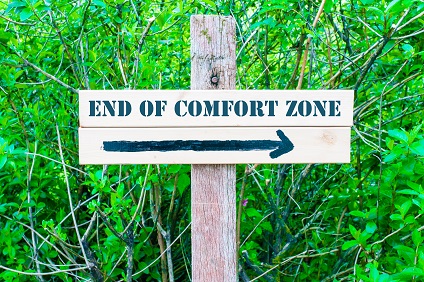How to Build a Growth Mindset in 5 Simple Steps
The benefits of a Growth Mindset seem obvious and many of us believe we have one, but the reality is that most of us are guilty of having a Fixed Mindset in certain situations.
We might avoid trying new things because we don’t want to feel foolish or fail, we give up building a new skill after one or two attempts, or say to ourselves “this is too hard” or “I’m just not good at that!”
These are all examples of the Fixed Mindset in action.
Learning about and building a Growth Mindset will increase your level of achievement, increase your self-esteem and confidence, improve your relationships and lower your risk of depression.
Would you like any of those benefits?
In the extract from a recent MasterClass below, Sandra will give you 5 simple steps to build your Growth Mindset and move away from a Fixed Mindset.
Subscribe to the PODCAST of the Great Managers® MasterClass
[Video Transcript Below]
Reality Check – Most of us Think we Have a Growth Mindset.
I go into a lot of organisations, and whenever I ask the groups that I work with about whether they’re open to growth and learning, they all say “Yes, absolutely!”
I hear this response but I often see something very different in terms of behaviour and reactions when it comes to trying out some new skills or make changes.
It’s what you think, and do, and say in response to a situation that is the most realistic indicator of whether you have a Growth Mindset or a Fixed one. Think about this for a moment.
How do you respond to a challenge?
When I’m running training, I’ll say to the group, “Let’s do a role play to practice this skill.”
A large percentage of people will moan and some will even withdraw and do whatever they can to not take a role in that activity.
It’s important to tune in to your automatic response the next time you’re challenged.
I’m not just talking about (scary) role-plays. I’m talking about your response to any kind of challenge.
How do you respond to feedback?
Imagine I’m your boss and I say to you, “There are a number of mistakes in the schedule you developed.”
Are you curious to find out how to fix the mistakes?
Or do you get defensive and say, “I just did what you told me to”?
How do you respond when you don’t know something or don’t know what to do?
You might be given a problem and have no idea where to start.
What do you do next? Do you get frustrated?
Do you say, “Oh this can’t be done”
Or do you blame others?
Or perhaps you get curious?
Now I know you’ll say this depends on the situation, but it does pay to start noticing your habits and patterns of behaviour because that will reveal where you currently are in relation to mindset.
Those questions were just thought-starters for you. They’re part of our reality check.
Because most of us like to think we have a Growth Mindset, but the reality is that most of us are guilty of having a Fixed Mindset in certain situations.
Most of us have Fixed Mindsets about something.
If we don’t know the signs of a Fixed Mindset, this very habit can be what is preventing us from having the success we would like in our lives, whether that’s at work, with our health, or in our relationships.
What Kind of Mindset Do You Have, Really?
According to psychologist and author Carol Dweck, individuals can be placed on a continuum according to their implicit views of where their ability comes from.
- Some believe their success is based on innate ability. These people are said to have a fixed theory of intelligence or a Fixed Mindset.
- Others who believe their success is based on hard work, learning, training, and perseverance are said to have a Growth Mindset.
Individuals may not necessarily be aware of their own mindset, and this is very common, but their mindset can still be discerned based on their behaviour and their language.
It is especially evident in their reaction to failure.
- Fixed Mindset individuals dread failure because it is a negative statement on their basic abilities.
- Growth Mindset individuals don’t mind or fear failure as much because they realise their performance can be improved, and that learning comes from failure.
These two mindsets play an important role in all aspects of a person’s life.
Dweck argues that the Growth Mindset will allow a person to live a less stressful and more successful life.
How great would it be to be able to own and control that?
5 Simple Steps toward a Growth Mindset
At Great Managers® we’re all about building new skills and habits.
So here is our Great Managers 5 Step process to help you build the habit of a Growth Mindset.
1. Believe
You need to genuinely believe that you can learn. Since these are your thoughts, you can change them.
This is the essence of personal power, of choice and responsibility.
As Viktor Frankl wrote in his book, Man’s Search for Meaning:
“Everything can be taken away from a person but one thing. The last of the human freedoms is to choose one’s attitude or belief in any given set of circumstances. To choose one’s own way.”
Be willing to believe.
2. Stretch
“Get thirsty!”
Stretch outside your comfort zone.
When we stretch our body it feels really good. It can be the same with your mind.
Start associating that discomfort with growth. Start to enjoy that feeling. Think of it as an adventure.
Enjoy the tension of not knowing yet.
The truth is, as a leader if you’re not growing, you’re actually getting left behind!
3. Plan and Do
Think about what you want to get better at and plan when you’re going to use that skill.
Then do it a lot, in stages if necessary.
All skill development is a progression that requires practice.
Think about what it takes to become a better listener, for example.
It takes thinking about what you will practice. Such as your paraphrasing, being attentive and asking good questions.
Then it takes actually doing these things.
When I hear people I’m coaching say, “I haven’t had a chance to practice my listening since I saw you last,” I know it’s a fixed mindset in action.
There are hundreds of opportunities every day to practice your listening skills. Unless you’re living in a cave and have absolutely no interaction with other people.
It’s the discomfort of trying something new or better than your current pattern that holds people back.
Plan and do, and remember that growth or achievement comes from Skill X Effort.
Everything important in life requires huge amounts of effort over long periods of time, your leadership skills included.
4. Review
This stage is about being prepared to make mistakes, seeing what you can learn from them and try again.
It’s about encouraging and coaching yourself and asking good questions, such as:
“What could I do differently next time?”
Or “What would my best efforts look like?”
Did you know that Thomas Edison made over 1,000 attempts when inventing the light bulb?
When asked about it, he allegedly said, “I have not failed 1,000 times. I have successfully discovered 1,000 ways not to make a light bulb.”
The idea is that even if you try and fail, it doesn’t mean that you didn’t learn something.
This step is about learning that each fail or mistake is crucial to your success if you learn from it.
5. Repeat

Repeat the pattern.
Do it more.
The fastest way to change your mindset is to feed the one you want to create.
Scientists find that every time you feed a positive mindset, it weakens the negative ones.
Every time you use a Growth Mindset you weaken your Fixed one.
Your Growth Mindset neural networks get stronger and your Fixed Mindset neural networks get weaker.
Professional athletes and top sports people have known this for years. Look at what they feed their mind every day.
Not only do they practice their exceptional skills over and over again, they also spend time watching films of other successful sports stars.
They spend time visualising and feeling themselves going through the same events. They focus so much on their psychological state and mindset because they know how important it is to their success.
Repetition is key to growth.
Final Note
Enjoy the growth!
Positive emotions imprint learning and make it stick.
Positive emotions trigger the release of endorphins and other supportive brain chemistry.
Remember, any resistance you feel is just the neural network.
It takes effort to form new neural networks.
It has nothing to do with your worth or your abilities.
Strengthen your Growth Mindset by adding enthusiasm and inspiration, and make it fun!











